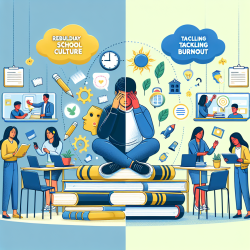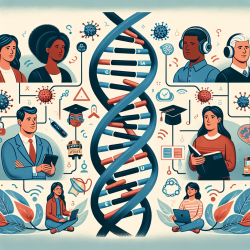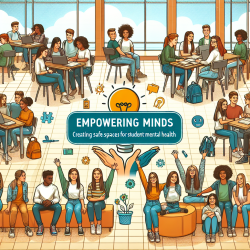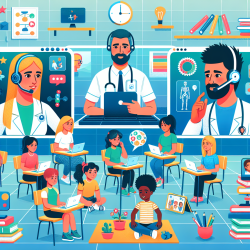As a Special Education Director, my role encompasses not only ensuring compliance and addressing staffing shortages but also fostering an environment where our students can thrive. The latest insights from the Project Earthrise: Proceedings of the Ninth Annual Conference of inVIVO Planetary Health provide invaluable strategies for enhancing our practices and supporting our students. This research emphasizes the interconnectedness of human and planetary health, offering a holistic approach that can be integrated into special education.
Embracing a Holistic Approach
Project Earthrise underscores the importance of a holistic perspective in education, recognizing that the health of our students is deeply intertwined with the health of our environment. By incorporating principles of planetary health into our special education programs, we can create a more supportive and enriching environment for our students. This involves not only addressing their immediate educational needs but also considering their long-term well-being and the sustainability of our practices.
Strategies for Implementation
Here are some actionable strategies derived from the research that can be implemented in our school district:
- Incorporate Nature-Based Learning: Utilize outdoor spaces and natural elements in the learning environment to enhance sensory experiences and promote mental well-being.
- Promote Environmental Stewardship: Encourage students to participate in activities that foster a connection to nature and a sense of responsibility for the environment.
- Support Mental Health: Integrate mindfulness and stress-reduction techniques into the curriculum to support the emotional well-being of students and staff.
- Collaborate with Community Resources: Partner with local organizations and experts to bring diverse perspectives and resources into the classroom.
Addressing Staffing Shortages
One of the pressing challenges in special education is the shortage of qualified therapists. The insights from Project Earthrise can help us address this issue by:
- Leveraging Technology: Utilize online therapy services, such as those provided by TinyEYE, to ensure students have access to necessary support, regardless of geographical constraints.
- Professional Development: Invest in ongoing training for our staff to keep them updated on the latest research and best practices in special education and planetary health.
- Building a Supportive Network: Foster a community of practice among educators and therapists to share resources, strategies, and support.
Engaging Parents and Guardians
Effective communication and collaboration with parents are crucial for the success of our students. Here are some ways to involve parents in the journey towards a holistic and sustainable education:
- Informational Workshops: Organize workshops to educate parents about the principles of planetary health and how they can support their child's development at home.
- Regular Updates: Provide regular updates on their child's progress and the initiatives being implemented in the school.
- Feedback Mechanisms: Create opportunities for parents to share their feedback and suggestions to continuously improve our programs.
Looking Ahead
By integrating the insights from Project Earthrise into our special education practices, we can create a more holistic, supportive, and sustainable learning environment for our students. This approach not only addresses their immediate needs but also prepares them for a healthier and more resilient future.
To read the original research paper, please follow this link: Project Earthrise: Proceedings of the Ninth Annual Conference of inVIVO Planetary Health.










